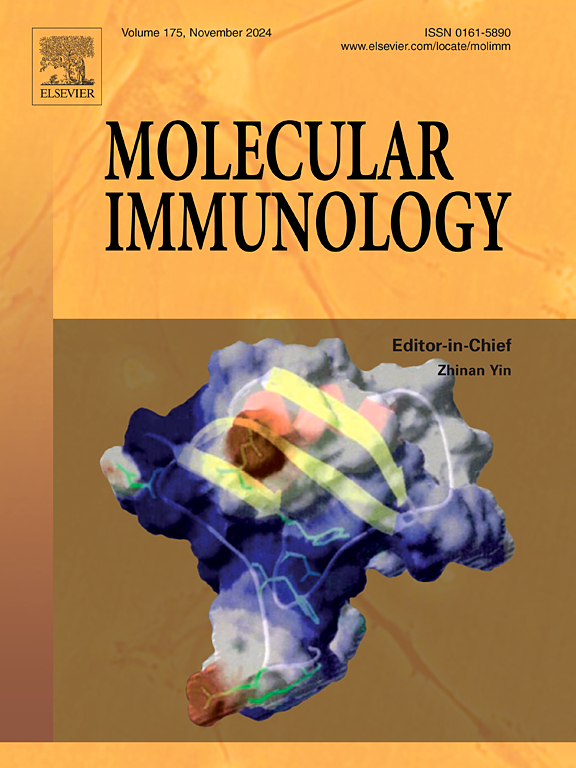Dexmedetomidine improve lung inflammation by regulating autophagy and apoptosis of CD4+ T cell via AMPK/mTOR signaling
IF 3
3区 医学
Q2 BIOCHEMISTRY & MOLECULAR BIOLOGY
引用次数: 0
Abstract
Objectives
To investigate the protective effect and potential mechanism of dexmedetomidine (Dex) in acute lung injury (ALI).
Materials and methods
C57BL/6 mice and EL-4 cells were used for in vivo and in vitro studies, respectively. Cecal ligation and puncture (CLP) method was used to prepare an acute lung injury model. After dexmedetomidine intervention, tissue and cell samples were collected to evaluate and measure the severity of lung damage, the proportion of Treg cells, the expression of autophagy-related protein levels and AMPK/mTOR pathways.
Results
Dex reduced lung damage, and IL-17a, MPO positive cells in the lung, decreased the levels of pro-inflammatory cytokines, and restrain autophagy and apoptosis via the activation of the AMPK/mTOR pathway and increase of the proportion of Tregs.
Conclusions
Dex can inhibit the levels of autophagy and apoptosis, increase the proportion of Treg cells, and reduce CLP induced acute lung injury through regulating AKMP/MTOR pathway.
右美托咪定通过AMPK/mTOR信号通路调节CD4+ T细胞的自噬和凋亡,改善肺部炎症
目的探讨右美托咪定(Dex)对急性肺损伤(ALI)的保护作用及其可能机制。材料与方法体内实验采用sc57bl /6小鼠,体外实验采用EL-4细胞。采用盲肠结扎穿刺法(CLP)制备急性肺损伤模型。右美托咪定干预后,收集组织和细胞样本,评估和测量肺损伤严重程度、Treg细胞比例、自噬相关蛋白表达水平和AMPK/mTOR通路。结果dex可减轻肺损伤,抑制肺组织中IL-17a、MPO阳性细胞,降低促炎因子水平,通过激活AMPK/mTOR通路,增加Tregs比例抑制自噬和凋亡。结论丹参通过调节AKMP/MTOR通路,抑制自噬和凋亡水平,增加Treg细胞比例,减轻CLP诱导的急性肺损伤。
本文章由计算机程序翻译,如有差异,请以英文原文为准。
求助全文
约1分钟内获得全文
求助全文
来源期刊

Molecular immunology
医学-免疫学
CiteScore
6.90
自引率
2.80%
发文量
324
审稿时长
50 days
期刊介绍:
Molecular Immunology publishes original articles, reviews and commentaries on all areas of immunology, with a particular focus on description of cellular, biochemical or genetic mechanisms underlying immunological phenomena. Studies on all model organisms, from invertebrates to humans, are suitable. Examples include, but are not restricted to:
Infection, autoimmunity, transplantation, immunodeficiencies, inflammation and tumor immunology
Mechanisms of induction, regulation and termination of innate and adaptive immunity
Intercellular communication, cooperation and regulation
Intracellular mechanisms of immunity (endocytosis, protein trafficking, pathogen recognition, antigen presentation, etc)
Mechanisms of action of the cells and molecules of the immune system
Structural analysis
Development of the immune system
Comparative immunology and evolution of the immune system
"Omics" studies and bioinformatics
Vaccines, biotechnology and therapeutic manipulation of the immune system (therapeutic antibodies, cytokines, cellular therapies, etc)
Technical developments.
 求助内容:
求助内容: 应助结果提醒方式:
应助结果提醒方式:


